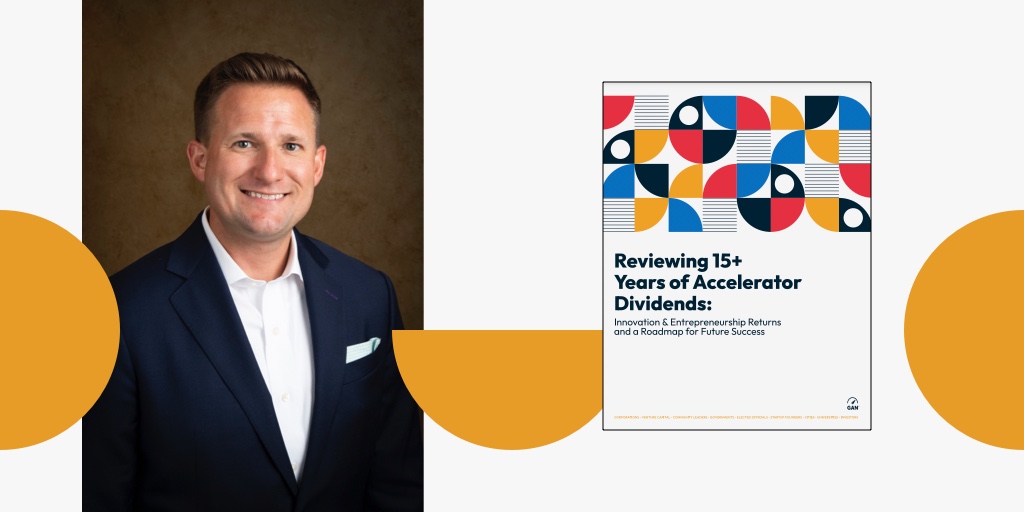I was recently asked to speak at the wedding ceremony of two of our founders (in separate businesses) that met in Memphis by participating in our accelerator. They asked me to speak on, and this is a direct quote: “Relating characteristics of 1) creating a great partnership as co-founders to build a successful company to 2) creating a great partnership in life / marriage for a successful relationship.” Here is what their prompt and their love inspired. I have altered the names and some facts to give some privacy to the couple. Enjoy and let me know what you think.
Spoken on the Occassion of Your Wedding
Good afternoon. I am Eric Mathews. I’m not the best man. And thankfully so. Sam you are certainly the best man for putting up with James for these 9 plus years. Nonetheless, it is a great honor to be here and be asked to speak.
For those who don’t know me, I’m the first investor for many business partners who come to Memphis, Tennessee to build and launch a new, amazing technology based business. James and Kimberly entered into our program in separate businesses in 2013 and found way more than business in Memphis – they found each other. With this in mind, James and Kimberly asked me to speak at their wedding ceremony on how business partnerships and lifelong loving partnerships are, at their core, the same.
For those gathered here today wondering, the answer is YES.
I was apprehensive to speak in business terms at a wedding ceremony. However, given the trust and love I’ve felt from and between James and Kimberly, I got comfortable with the words. More so I hope their love that inspired these words will inspire each of us to bring more love and care back into our daily lives and to the world of business. James and Kimberly, I’m grateful for the trust you have placed in me here.
So let’s start at the beginning and the first foundation. In the first days of our business accelerator program, we have the new business partners review their personality types to better understand one another. Next, we ask them to answer tough questions openly and honestly with each other. We also place them into tough and uncomfortable situations where they will have to come together and rise and fall as a team. This is all done because one the biggest causes of business failure is having a dysfunctional team with poor interpersonal dynamics. I think we can all identify with the importance. We all need strong partners that have complementary strengths to account for our weaknesses. We need the strength of honesty, when things are going wrong. We seek mutual respect to understand that failure is an event and not a person. We need the personal strength to accept and solve our own problems, our partners problems, and your collective problems without blaming the other person. We need open communication so that nothing is hidden including unspoken expectations, personal needs, or opportunities for growth.
All great partnerships require a daily commitment to these relationship principles to be lasting.
This leads to the next foundation that our entrepreneurs learn in Memphis: start with “why.” Why do we wake up each day? What is our collective purpose and intent? Purpose drives great entrepreneurship but also great love. You and your partner wake up with a shared purpose to change the world and each other for the better. Money is not a sufficient motivator in business and marrying for money can lead to far worse. Money is not sufficient because of the amount of sacrifice needed for mutual success. You need a purpose around which you wake up everyday and are motivated to help each other succeed as individuals as well as a unit. You will need to understand and contextualize your purpose so that you can celebrate the small victories, lift each other up in defeat, be excited to discover the unknown together, and to work together to leave the world a better place — these are the true rewards.
All great partnerships require a daily commitment to purpose to be lasting in the good times and in the harder times.
Finally, there is a step beyond the foundations of building a great team relationship and defining and living with great purpose. A great team and a great purpose will get you started, but over time we’ve found that you need something that helps guide you over the long haul. You need a manner in which you can evaluate whether your partnership is on track or whether you need to course correct. You need a lens by which you can evaluate tough decisions where perhaps there are no good solutions or the opposite scenario where there are too many good options. You need a way to evaluate the unexpected together. We find that the best partners in life and in business mutually hold the same core values and beliefs. These guideposts are unique to each partnership and help all partners make great decisions daily in service of one another and the purpose and intent of their relationship.
All great partnerships require a daily commitment to core values and beliefs to help them stay on track.
Kimberly and James, arriving at a business accelerator in Memphis, I think we would all expect to find great business opportunities and great friendships. However, I don’t think love and marriage would have been an outcome that any of us would have placed bets on in May of 2013. Yet here we are and it is testament to each of you. You have the kind of love that empowers not only each other, but also empowers those gathered here today who can feel it and be better for it.
May your commitment to each other, to great purpose, and to your core values and beliefs be your guide forever and always.

